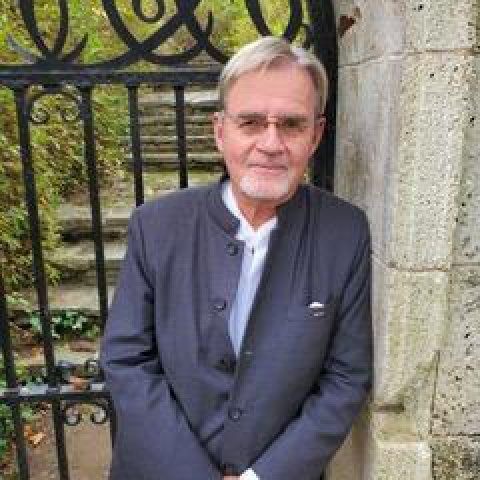Kai Bird
Former Fellow
Professional Affiliation
Director of the Leon Levy Center for Biography at the Graduate Center of the City University of New York
Expert Bio
I came to the practice of biography-the most intimate form of history-through journalism. In February 1972, when I was barely 20 years of age, I managed to tag along with a CBS-TV crew as they drove from Calcutta to Dacca, Bangladesh. The 1971 Indo-Pakistani war had ended just six weeks earlier and I desperately wanted to be a foreign correspondent. Dacca was a city in chaos. When the local bureau chief for United Press International had to travel north for a week, he hired me to cover for him. I filed my first story a few days later, a sad piece about a team of American doctors performing abortions for scores of Bengali women who had been raped during the war.
In the autumn of 1973, after graduating from a small liberal arts college in the mid-West, I took off for North Yemen, armed with two Nikons and a portable Olivetti typewriter. I was delighted to learn that I was the only freelance American reporter in Yemen. Alas, it soon became apparent that my exclusive reports from Sana'a held little interest for editors in North America. I sold a few feature stories to the Chicago Daily News and the Minneapolis Tribune, but my chief outlet became Sketch, a small circulation English language news magazine published in Beirut. The editors at Sketch were prepared to pay me $50 each week for a 500 word story. Paydirt!
Over the next few years, I traveled throughout the Middle East and South Asia, freelancing for similar publications like the Far Eastern Economic Review, Worldview Magazine, and The Nation, America's oldest and rather liberal weekly. After a brief and lackluster sojourn at Newsweek in 1977, I landed a job as the assistant editor of The Nation. For five years I labored seven days a week and typically put in twelve-hour days editing manuscripts and writing editorials. The starvation wages meant nothing to me-the work was everything. I served as the magazine's foreign editor and managed to travel abroad once a year. I wrote long essays about the Israeli invasion of southern Lebanon, the 1979-80 Iranian revolution and U.S. policy in the Middle East.
In the spring of 1981 I served as the guest foreign editor for The New Statesman in London. And then at the foolish age of 30, I decided it was time to write a book. It seemed the logical next step. Not having written a book before, I was fearless and chose to write a full-scale biography of John J. McCloy, the then reigning chairman of the American foreign policy establishment. Simon & Schuster gave me a two-year deadline. My initial intention was to write a short, journalistic account of McCloy's role as a behind-the-scenes powerbroker. But then I acquired a severe case of biographer's disease; after rummaging around in Averell Harriman's dungeon, I read thousands of pages of classified documents about all aspects of the Cold War. Later, I spent months in the various presidential libraries. Soon I was in love with the archives and couldn't stop researching.
Ten years later-in 1992-The Chairman: John J. McCloy and the Making of the American Establishment was finally published to front-page reviews in The New York Times Book Review, The Washington Post's Book World and Los Angeles Times Book Review. An 800-page book, it was out of print two years later. Undeterred, I spent another seven years writing a biography of two other sons of the American establishment. I had first encountered McGeorge Bundy-the national security adviser under Kennedy and Johnson-in 1972 when he came to my college campus. He was then basically still defending the war he had helped to craft in Vietnam. I came away from this first rendezvous angry, but also perplexed and curious to know how such an intelligent man had become so intimately associated with such a national disaster. The Color of Truth: McGeorge Bundy and William Bundy, Brothers in Arms was published in 1998. The Washington Post Book World gave it a front page review-and The New York Times assigned the review to a brilliant procrastinator who turned in a 4,000 word review six months after the book's publication. So it goes. A decidedly trenchant review came from a Bundy intimate, Arthur Schlesinger, Jr., who wrote that "fair-minded scholarship triumphed over evident political disapproval in his [Bird's] very good book on the Bundys." Also in 1998, I co-edited a fat anthology on Hiroshima and the 1995 Enola Gay controversy. Gore Vidal wrote that Hiroshima's Shadow: Writings on the Denial of History and the Smithsonian Controversy "is easily the best overview of the most debated event in our stormy history." I am now co-authoring with Professor Martin Sherwin a biography of J. Robert Oppenheimer, whose own life will forever be linked to what happened at Hiroshima in 1945.
Wilson Center Project
"J. Robert Oppenheimer: A Biography"
Project Summary
J. Robert Oppenheimer (1904-1967) is a 20th century icon. A half century ago he was proclaimed the "father of the atomic bomb." Today he is one of those rare celebrities in popular American culture whose name resonates in the worlds of science and politics. Oppenheimer has become an internationally recognized cult figure, a man whose magnetic personality and brilliance nevertheless could not protect him from a life stalked by tragedy. He has become that most enduring of subjects, a mystery unsolved. An accounting of his intellectual life and times will greatly enhance our understanding of the foundations of American political culture in the post-Hiroshima nuclear era. Astonishingly, despite the importance and richness of this life story, there is still no full biography available on Oppenheimer. I have now teamed up with Professor Martin Sherwin to write this important biography.
Major Publications
- The Color of Truth: McGeorge Bundy & William Bundy, Brothers in Arms. Simon & Schuster, 1998.
- The Chairman: John J. McCloy / The Making of the American Establishment. Simon & Schuster, 1992.
- Hiroshima's Shadow: Writings on the Denial of History and the Smithsonian Controversy. Co-editor with Lawrence Lifschultz. Pamphleteer's Press, 1998.
Insight & Analysis by Kai Bird
- Video
- History
From Bestseller to Blockbuster: The J. Robert Oppenheimer Story
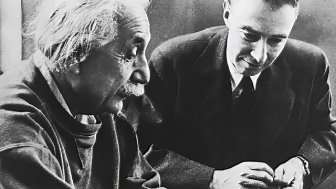
- Book
- Nuclear History
American Prometheus: The Triumph and Tragedy of J. Robert Oppenheimer
- By
- Kai Bird and
- Martin Sherwin
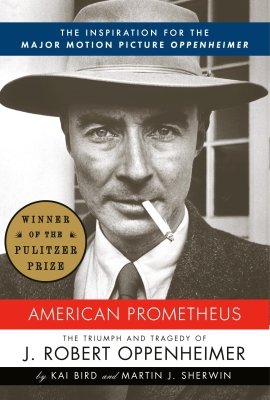
- Past event
- History
The Outlier: The Unfinished Presidency of Jimmy Carter
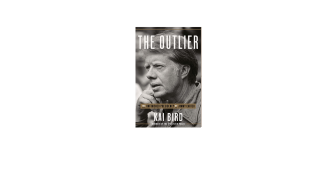
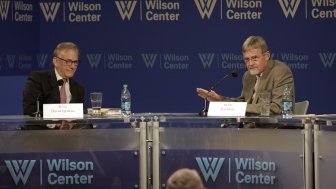
- Past event
- Cold War
Book Launch: J. Robert Oppenheimer: American Prometheus
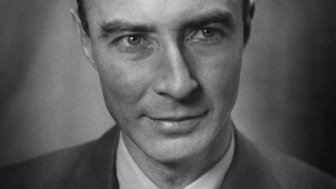
- Video
Oppenheimer

